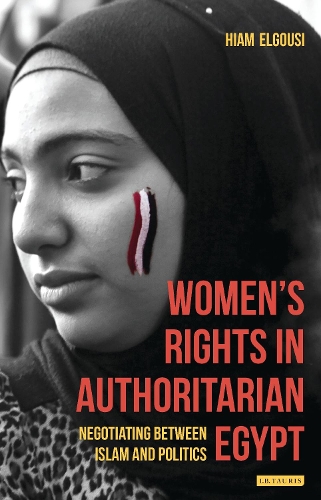
Women's Rights in Authoritarian Egypt: Negotiating Between Islam and Politics
(Hardback)
Publishing Details
Women's Rights in Authoritarian Egypt: Negotiating Between Islam and Politics
By (Author) Hiam Elgousi
Bloomsbury Publishing PLC
I.B. Tauris
30th April 2016
United Kingdom
Classifications
Tertiary Education
Non Fiction
Gender studies: women and girls
Social groups: religious groups and communities
323.340962
Physical Properties
Hardback
224
Width 144mm, Height 218mm, Spine 22mm
420g
Description
During the uprisings of late 2010 and 2011 which took place across the Middle East and North Africa, women made up an important part of the crowds protesting. Women's rights were central to the demands made. However, despite this, in the ensuing social and political struggles, these rights have not progressed much beyond the situation under previous governments. Hiam El-Gousi's book offers an examination of the status of women under Egypt's various authoritarian regimes. In exploring the role played by religious scholars in helping to define women's status in society, she focuses on personal status laws and health rights. In examining the issue of women's rights El-Gousi begins with an account of feminism in Egypt: the centre of feminist thought in the Middle East at the end of the nineteenth and beginning of the twentieth century. Based on extensive research in the country, especially at grassroots level, El-Gousi goes on to analyse the constitutional and legislative rulings which have affected the lives and rights of Egyptian women. This book will become a vital primary resource for those studying feminism in the wider Middle East and North Africa.
Reviews
'This work takes a serious look into the status of the 'Ulama in contemporary Egypt through examining their relationship with the State and their influential role within Egyptian society as it affects the status of Egyptian women which Elgousi investigates from the early beginnings of the Egyptian Feminist Movement to the emergence of Islamic feminism. The book tactfully examines the Egyptian Constitution and its relation to the Egyptian family law along with analyzing the role played by the Azhar 'Ulama in shaping them. This analysis is consolidated with data collected from Cairo and Qena Governorates which centers on the relationship between Muslim women's rights in Egypt and the influential role played by the Azhar 'Ulama.' - Zahia Smail Salhi, Professor of Modern Arabic Studies, University of Manchester; 'This book provides a thorough multidisciplinary introduction to the various religious, cultural, historical, political, economic and social factors that affect the status and implementation of women's rights in authoritarian contexts such as Egypt and the broader Middle East. This book would be ideal for undergraduate courses in various disciplines that introduce students to issues of gender and women's rights in the Middle East.' - Helen Rizzo, Associate Professor of Sociology, The American University in Cairo
Author Bio
Hiam El-Gousi is a former Lecturer in the Department of Arabic and Middle Eastern Studies at the University of Leeds, where she was awarded her PhD. Currently she is working as a consultant and research associate with various NGOs in the UK and Egypt.
